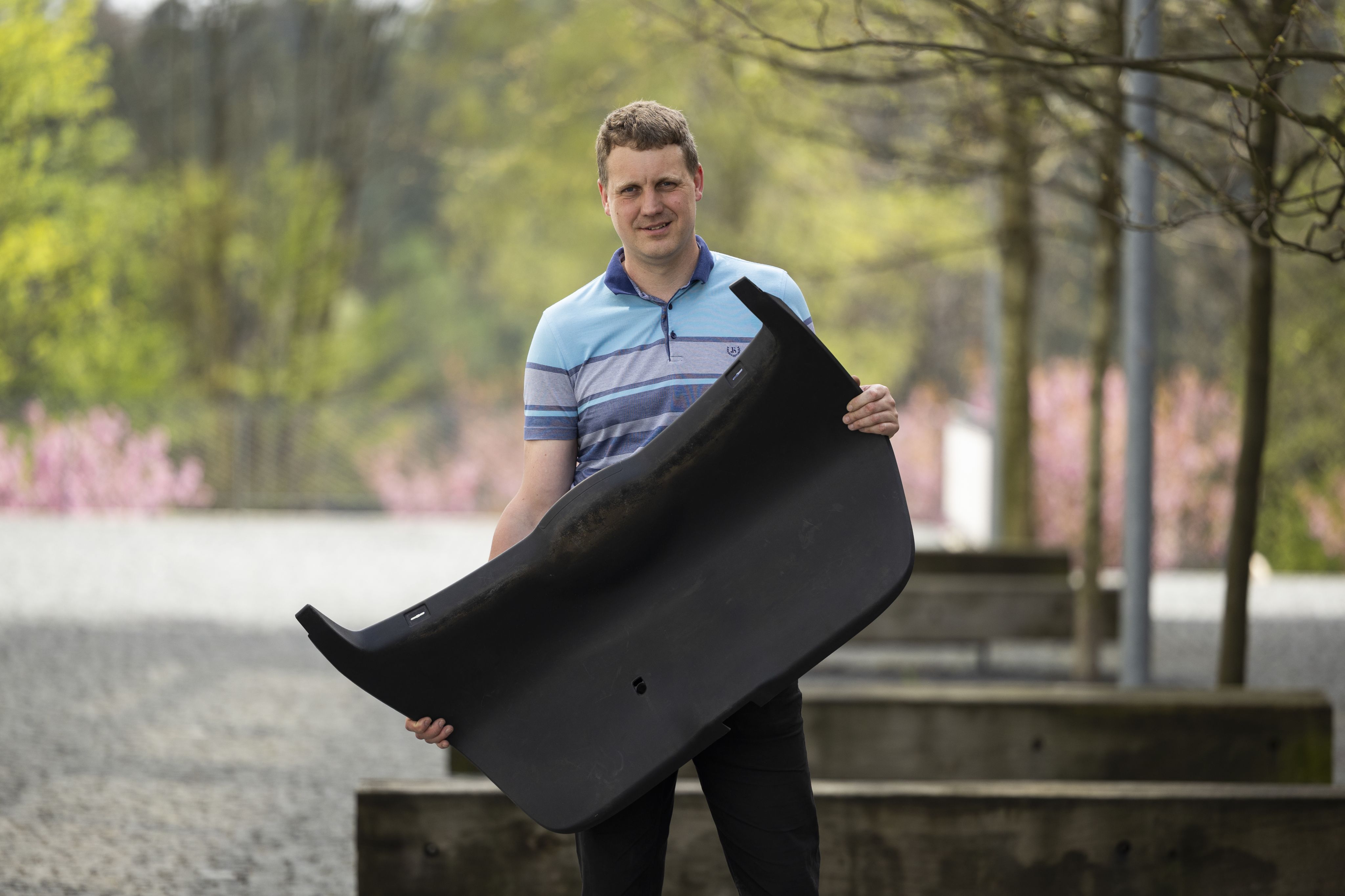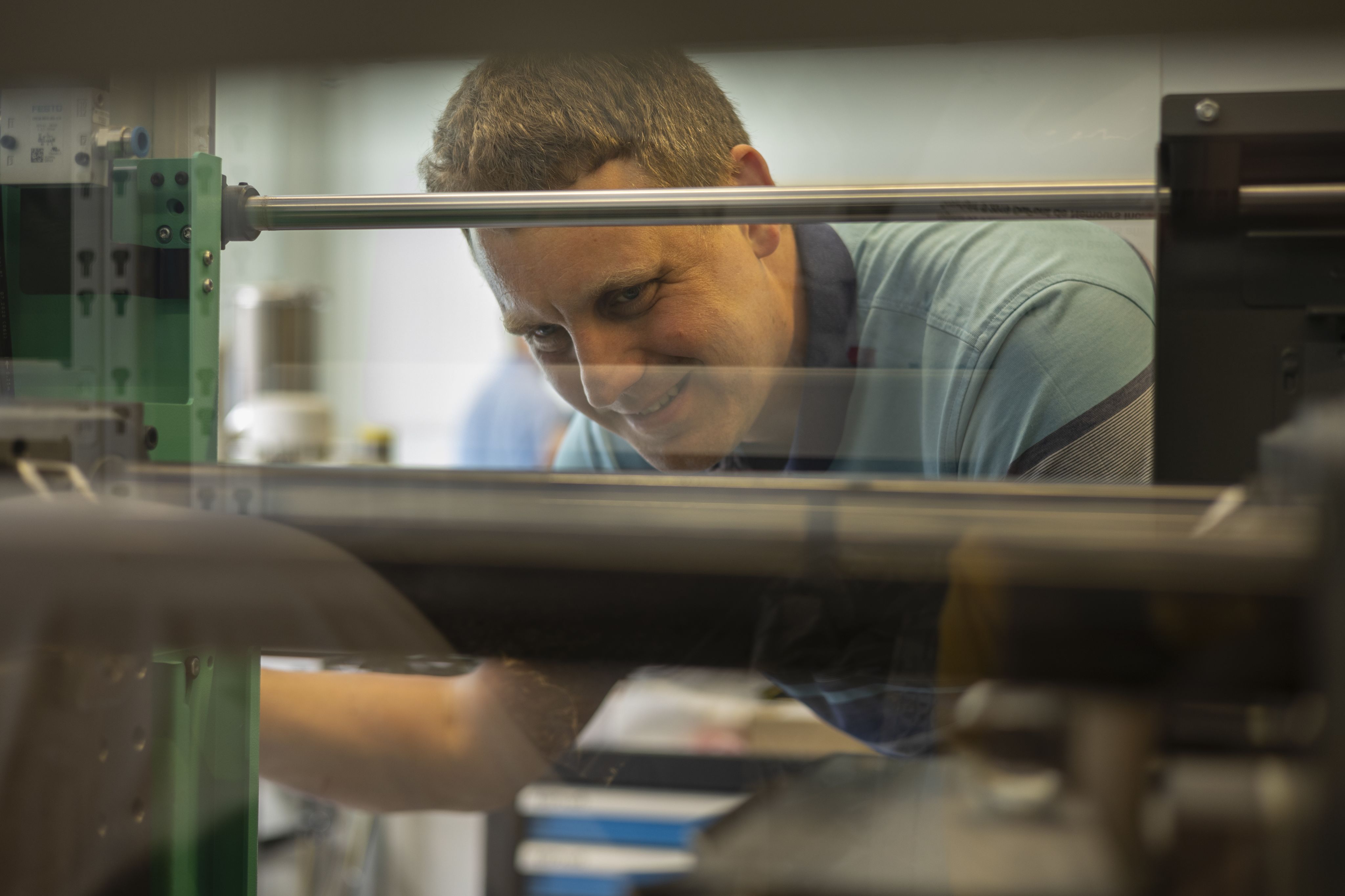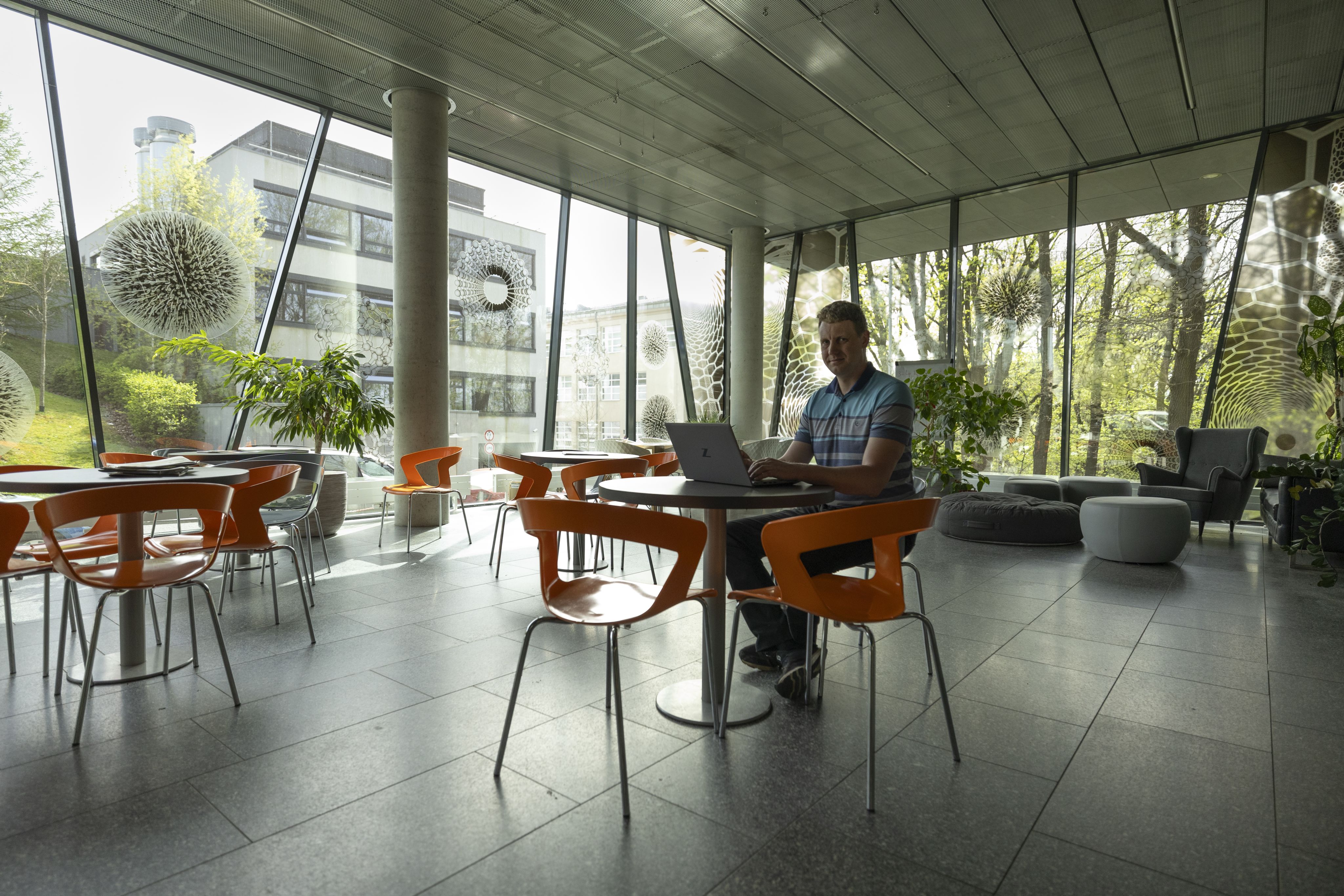CAR COMPANIES ARE TRENDSETTERS IN MATERIAL SUSTAINABILITY
“Nowadays, most people understand that it is necessary to protect nature,” says Lukáš Zuzánek, who focuses on the development of sustainable materials

From material production to recyclability of a used car. In the automotive industry, the issue of sustainability comprises of many phases. Lukáš Zuzánek is at the imaginary beginning of the ESG chain. At Škoda Auto's technical development, he focuses on the development of sustainable materials, which are then used to create various parts for specific cars. He used to work, for example, with natural fillers, but now the trend has turned towards recycled plastics, metals and other materials. How is the perception of sustainable materials changing, and why should the largest domestic car manufacturer be a driving force in environmental protection?
What do you think sustainability is all about?
In the technical development department, we perceive sustainability from many points of view. We focus on the way recycled plastics and metals can be used to save non-renewable fossil resources. Recycled materials also have a lower carbon footprint and generally guarantee more gentle processes. Recently, we have been focusing on recycled products from the so-called post-consumer source – in other words, from things at the end of their useful life. It can be, for example, old materials from cars and car wrecking yards, which we can reuse to produce new parts. We have recently launched a project called Bumper from a bumper. To produce new bumpers, we use materials partially obtained from old bumpers.
How do you consider the carbon footprint when developing sustainable materials?
The carbon footprint is one of the factors we monitor for individual types of materials. For future projects, the goal is to work with materials that have a lower carbon footprint. Recycled materials perfectly fulfill this objective. We use recycled plastics, but also metals. We are considering whether a larger amount of iron scrap can be used in the future or whether there are production technologies that would ensure further reduction of the carbon footprint. Glass or copper may also belong into the category of sustainable materials, since the possibility of increasing the recycled share is being considered. Nowadays, most people understand that it is necessary to protect nature. This is just one of the ways to show how important sustainability is to Škoda Auto.

Are you currently using more recycled or natural materials?
We are now focusing mainly on recycled materials, but that wasn’t always the case. Materials from natural sources used to be the main deal, and we have already used them for some projects – for example, wood chips, flax and kenaf fibers or sheep's wool were used to make seat covers. We also had interesting development projects with the aim of using renewable production waste as a filler in polymers. The amount of petroleum material would be minimized, and we would add an interesting natural component. On the other hand, using natural components could potentially lead to a certain degradation of the material and poorer recyclability at the end of its life, which is why recycled products are more profitable for us. Everything is evolving. We want to use sustainable materials more and more for parts with higher demands, for example interior ones.
During production, are you already taking into account how the materials will be recycled?
Yes, the car must be at least 85% recyclable, so it is necessary to use materials that meet this goal. We want to produce well-recyclable cars, the parts of which can be well processed after their end of life. We work with the so-called mono-material concepts – we use a lower variety of materials during production and thus significantly simplify future recycling.
FOUR HIGH-PRIORITY AREAS OF SUSTAINABILITY
- Climate change
- Resources
- Air quality
- Compliance with environmental regulations
When did sustainability become a key topic in the automotive industry?
When people think of sustainability in this context, the first thing that comes to their mind is often electromobility. That is not the concern of our department, though. We focus mainly on materials, and we are looking for more environmentally friendly options in this specific sphere. As far as our specialization is concerned, sustainability has only become a big subject in the last few years. However, from the point of view of legal requirements for the recyclability of cars, our work is based on older guidelines, even from 2005. Still, the use of recycled materials is mainly a trend of this decade.

When did you personally become actively interested in sustainability and the environment?
When I was still just a student. At the Technical University in Liberec, I mainly dealt with metal or plastic processing technology. When I first came to Škoda, I was in charge of metal materials and weight saving. The lower the weight of the car, the lower the consumption and the CO2 levels. This trend gradually transformed into a broader concept of sustainability in the automotive industry. Today, we test and analyze each material in cooperation with our laboratory. We assess whether it is suitable and according to the standards, and whether individual parts can be produced from it.
So, has the technical development changed over the last few years?
I dare to say that my former coordinator Jan Sláma was somewhat of a pioneer in the sustainability of materials. Years ago, together with him, we tried to educate others on what recycled materials actually are. Back then, some individuals perceived them as some kind of low-quality waste. However, we managed to convince a lot of people of the opposite and slightly advance the technical development. Today, Jan works for the concern all the way from China.
Sourec: skoda-auto.cz
Sourec: skoda-auto.cz
Do you think that big tech and car companies should be trendsetters in the field of sustainability?
Definitely. Of course, each individual can also contribute – perhaps just by sorting plastic waste or buying sustainable products. Yes, the impact of one person is not as huge as in the case of a multinational company. Škoda Auto can take big steps that save vital resources. As a car manufacturer, we also need a number of partners, thanks to which we can make progress in the field of material production sustainability. Today, we have several projects dealing with sustainability and long-term cooperation with universities – above all, but not only, with my Liberec alma mater, where they have a practical laboratory and the necessary equipment for material analysis.

In addition to environmental topics, the field of ESG also concerns, for example, social responsibility. Is the social aspect also considered in technical development activities?
We perceive ESG in the company as a whole, everything is connected. We develop something, another department calculates the real carbon footprint, and yet another one communicates the whole topic to customers. We have joint meetings related to sustainability across the company. Each team is at some stage of the chain. As for our department, we are at the very beginning. Each year, technical development also organizes an Innovation Day, where we regularly discuss sustainability. Last year, we managed to build what we call the second generation show car. It is an Enyaq car model, on which we show various possibilities for the potential use of sustainable – recycled or natural – materials. We are always exploring new possibilities.
LUKÁŠ ZUZÁNEK
expert in the development of sustainable materials
Lukáš Zuzánek holds a doctorate from the Technical University of Liberec. Since the beginning of his career at the largest Czech car company, he has been involved in the development of materials, primarily plastics and metals. In the last five years, he has been mainly dealing with their sustainability. By the way, this topic also reflects in his personal life. “My main hobby? Besides my family, it is the reconstruction and improvement of our home. I take care of the garden, sometimes I plant something, or maybe build something," says the expert in the development of sustainable materials, who claims that work has taught him more patience.















